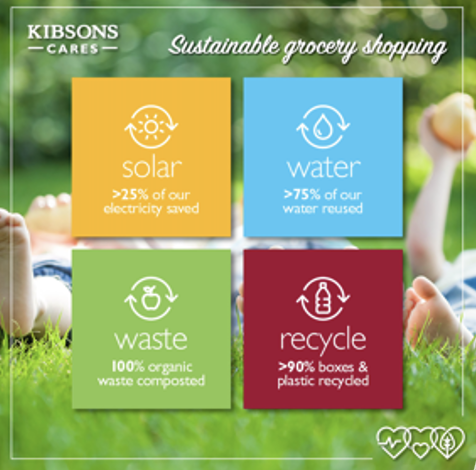Changing the food we eat and how we produce it has been an overlooked solution to the climate crisis for too long. Historically ignored in global climate negotiations, food systems have been made a top priority at COP28 beginning on November 30 in Dubai. This summer, Mariam bint Mohammed Almheiri, the UAE’s minister of climate change and the environment and Cop28 food systems lead, invited governments to sign the Leaders Declaration on Food Systems, Agriculture and Climate Action. Looking for businesses to meet the objectives of the “Impact” pillar of the “National Sustainability Campaign” that was recently launched in conjunction with preparations for the 28th Conference of the Parties to the United Nations Framework Convention on Climate Change (COP28), Almeiheiri has more recently urged the country’s food and beverage (F&B) sector to switch over to ‘climate conscious catering’ at scale.
Regionally, paving the way as the leading name in UAE farm to fork grocery delivery, and with consistent and key focus on environmentally friendly food systems and processes since 1980, Kibsons has delivered when it comes to sustainable growing and online food delivery service. Reshaping the way regional consumers shop for their food and encouraging smarter thinking for a kinder, healthier planet, focusing on the consumer cycle, Kibsons provides transparent sourcing and labeling information for the customer.
“The Cop28 summit brings the world’s eyes to the region, but crucially, helps consumers consider their own environmental impact and options in their daily lives. At Kibsons we have consistently taken steps to align with our own impact based goals on food sourcing, growth and security” says Kibsons CEO and Co-founder Halima Jumani. “We want to ensure our customers know where their food comes from, how it is handled and how we as a business are operating as sustainably as possible through our own processes, which we have been refining for the past 40 years as a UAE grown and family owned entity. By controlling our own dedicated importing, warehousing, distribution, IT and customer service teams we are able to optimise product quality and ultimately improve value to thousands of private households in the UAE., whilst controlling the company carbon footprint and minimising emissions, waste and more where we can” she continued.
Seven years since launching their renowned home delivery services, Kibsons has taken steps as part of its Kibsons Cares initiative to reduce its carbon footprint, and continues to improve its achievements towards their own environmental impact goals:
– SOLAR: A 50% reduction in electricity use. Spanning over the Kibsons 13,000 metre facility, electricity consumption is reduced by 25% on average annually; with 50% in winter months.
– WATER: 75% of water reused. The Kibsons water recycling plant is on track to recycle more than 75% of the water used to keep the demanding cold storage facility up and running. Did you know that by filtering and purifying the water utilised, Kibsons can save 1,000,000 gallons of water annually?
– WASTE: 100% organic waste composted. Kibsons organic waste composting plant converts their biodegradable waste material into high-quality organic compost and contributes to reducing their carbon footprint towards landfills wherever possible – producing half a ton of recycled compost per month!
– RECYCLE: 90% of plastic and paper is recycled by Kibsons. More than 90% of all plastic at the Kibsons facility is recycled.
Kibsons collects the delivery boxes back from customers’ homes, which are then sanitized at the facility and reused to prevent packaging wastage. Customers can request a pick-up of their boxes through the Kibsons app. Kibsons were the first company in the UAE to swap over to paper-based packaging and enable consumers to choose a ‘no packaging’ delivery option when they shop. Kibsons offer their customers the option of having their items packed in eco-friendly recyclable paper bags or packed without bags where possible.
To further prevent food waste, Kibsons offer an ‘ugly but tasty’ range of fruits and vegetables which allows customers to purchase imperfect or nearing-expiration produce at a discounted rate.
Aligning company goals with that of climate change challenges, Jumani continued: “Food systems contribute to one-third of global greenhouse gas (GHG) emissions. Collectively as an industry in the region, we must work together to transform food systems towards net-zero emissions, a restoration of natural resources and also boosting resilience of the local sector. For Kibsons, this starts at ‘home’ and we will continue to educate our consumers on not just the benefits for themselves, but also our own processes to highlight what is possible for other regional entities, and that it is possible to do so at scale”

